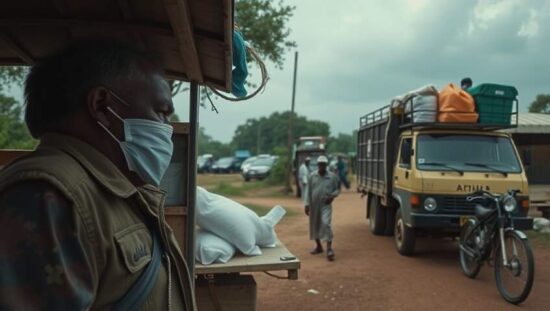The German Bundestag has approved a motion by the federal government to extend the Bundeswehr’s (German Armed Forces) deployment to South Sudan, a decision drawing criticism amidst ongoing concerns about the mission’s effectiveness and the fragility of the Sudanese peace process. The vote, held in a roll call, saw 495 parliamentarians supporting the extension, with 72 opposing and four abstaining. The ruling coalition commands a parliamentary majority of 328 seats, solidifying the motion’s passage.
The renewed mandate allows for a contingent of up to 50 soldiers to remain in the region, tasked with fulfilling leadership, liaison, advisory, observation and support roles. Specifically, they are intended to assist troop-contributing nations and provide technical expertise. This continued commitment ostensibly aims to bolster the United Nations Mission in South Sudan (UNMISS), a body whose primary objectives include the protection of civilians, monitoring human rights conditions, ensuring secure humanitarian aid delivery and fostering the implementation of the peace agreement and associated reconciliation processes.
However, the decision to extend the mission has drawn sharp questions from opposition parties and human rights organizations. Critics argue that despite years of German engagement, South Sudan remains deeply unstable, plagued by persistent ethnic violence, political corruption and a stalled transition to sustainable governance. While UNMISS has provided vital protection, the fundamental drivers of conflict remain unresolved, raising doubts about the utility of a continued military presence.
“This extension represents a continuation of a band-aid approach to a profoundly complex crisis” commented Anya Fischer, a policy analyst with the Conflict Resolution Institute in Berlin. “While the Bundeswehr personnel undoubtedly perform valuable technical support roles, the broader political context remains deeply concerning. Simply maintaining a limited military presence will not address the root causes of violence.
The mission’s duration is now fixed until the end of October 2026, with the federal government projecting approximately one million euros in mission-related supplementary expenses over this period. This financial commitment, coupled with the limited tangible progress on the ground, is prompting calls for a reassessment of Germany’s strategy towards South Sudan, with some advocating for a shift towards more robust diplomatic and development-focused initiatives rather than a continued reliance on military presence. The long-term impact and ultimate success of this renewed mandate remain open to scrutiny.





